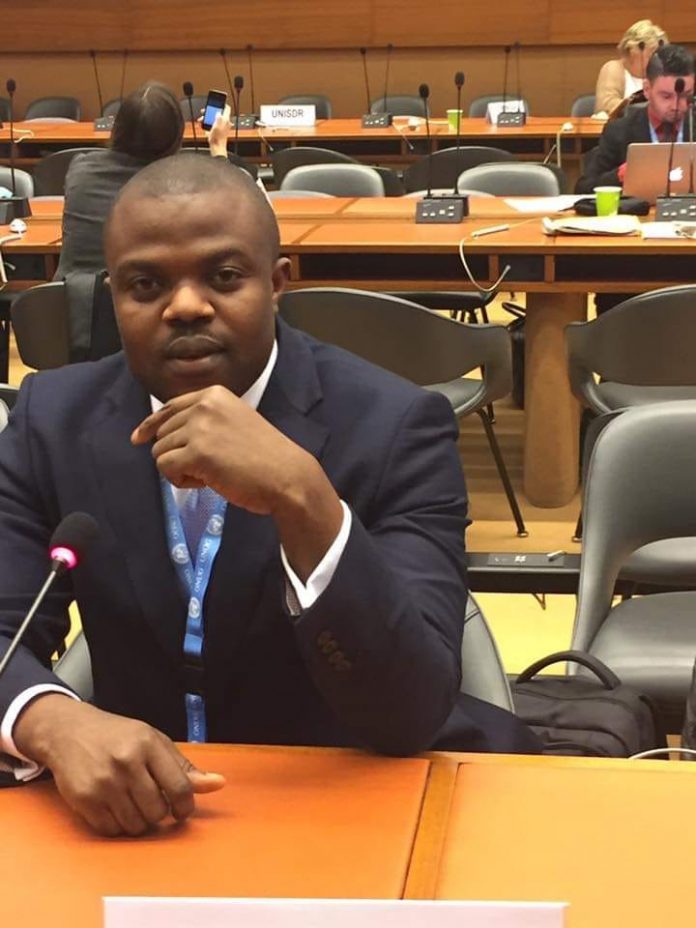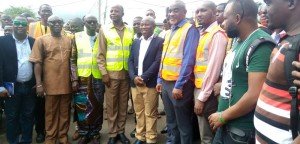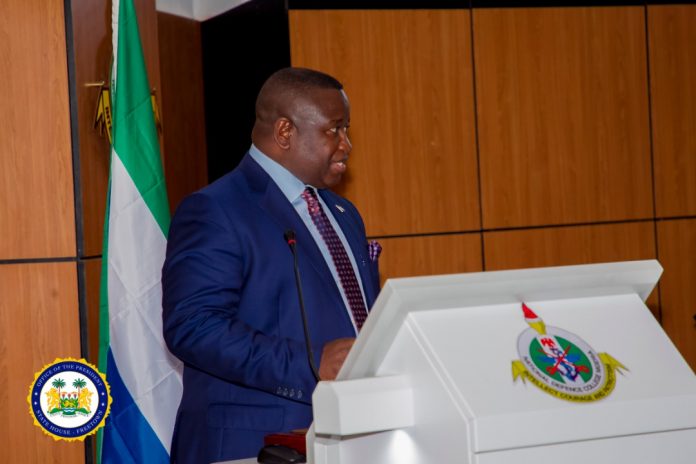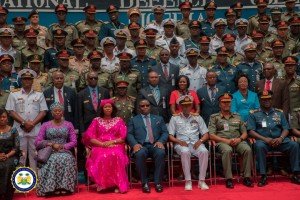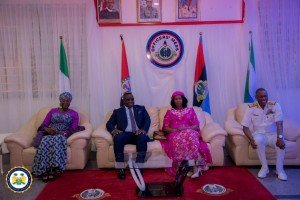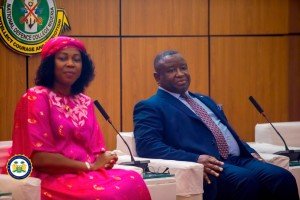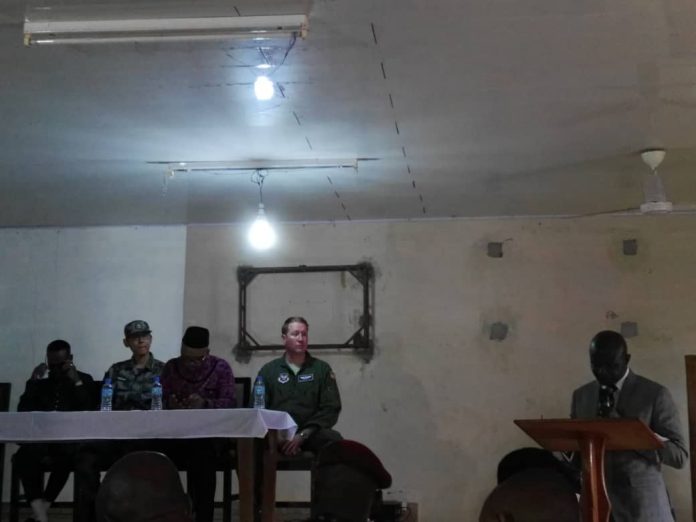By Abdul M. Fatoma – August 1st 2019
In Sierra Leone, the realisation of human rights is a very serious business indeed as in many cases it is a life and death matter. From child labour, the rural/village dweller deprived of basic health care, the mother unaware that the next pregnancy is not an inexorable fate, the urban/city dweller living in fear of the armed robber or burglar, the worker owed several months arrears of wages, and the activist organising against bad government, to the group of rural women seeking access to land so that they may send their children to school with the proceeds, people are acutely aware of the injustice inflicted upon them.
Knowledge of the contents of the Universal Declaration of Human Rights will hardly advance their condition. What they need is an organisation that channels these frustrations into articulate demands that evoke responses.
Some human rights organisations/institutions are unwilling and unable to provide these. In consequence, the real -life struggles for social justice are waged despite rights groups -not by or because of them, but by the people who feel that realities and aspirations are not adequately captured by human rights organisations and their language.
Pursuant to article 2 (1) of the International Covenant on Economic, Social and Cultural Rights, (CESCR), governments are obliged to take steps, using the maximum available resources, to progressively achieve high standards of health. The international human rights framework also imposes obligations on governments to develop and implement policies that provide all persons with the maximum opportunity to be healthy, including addressing poverty and homelessness.
The interdependence and indivisibility of the international human rights framework makes it clear that while governments have obligations to respect and protect the right to health — including also preventing, treating and controlling disease and ensuring access to appropriate health care — they also have an obligation to meet conditions required for the fulfilment of public health.
Consequently, this requires that they progressively correct conditions that may impede the realisation of the right to health — such as poverty as well as ensuring that all people have access to the goods and services necessary for good health, including the realisation of the right to adequate housing, the right to an adequate income or social security, the right to equality and freedom from discrimination, the right to privacy, the right to participation, the right to education and the right to dignity and respect.
Although the right to health does not necessarily translate as a right to ‘be healthy’ (the United Nations Committee on Economic, Social and Cultural Rights acknowledges that health is relative to an individual’s biological condition and a state’s available resources), the right does impose important substantive obligations on the government of Sierra Leone to establish conditions, designed to ensure that people have the best possible chance of being healthy, including the adoption of legislative measures that would make people access the full variety of facilities, goods, services and conditions necessary to ensure an individual’s health.
This includes access to appropriate health care and also access to safe water, adequate sanitation, and adequate supply of safe food, adequate nutrition, occupational health, and a healthy environment.
Humanity has the ability to make development sustainable — to ensure that it meets the needs of the present without compromising the ability of future generations to meet their own needs.
The concept of sustainable development does imply limits — not absolute limits but limitations imposed by the present state of technology and social organization on environmental resources and by the ability of the biosphere to absorb the effects of human activities.
Our organisation the Campaign for Human Rights and Development International (CHRDI) believes that widespread poverty is no longer inevitable. Poverty is not only an evil in itself, but sustainable development requires meeting the basic needs of all and extending to all the opportunity to fulfil their aspirations for a better life.
Today, chronic water shortages and lack of sanitation facilities affect the lives and health of large numbers of our people in Sierra Leone, a country where infants and young children die each year from preventable water-borne infectious diseases. It should be apparent that environmental and human rights issues are inextricably linked — to talk about one implies the other.
Subsequently, poverty tends to have a very negative overall impact on public health be it in Sierra Leone or any other country and substantial statistical analysis have demonstrated that the most critical determinants of a population’s life expectancy, (a key indicator of public health), are public expenditure on health care and the success of poverty alleviation strategies like ‘The Sierra Leone, Poverty Reduction Strategy Paper’, ‘The Agenda for Change’ and the ‘Agenda for Prosperity’, including targeted health care programs for the disadvantaged and social security and safety net measures. .
As we increasingly recognize the serious impact of a degraded environment on human health and wellbeing, we are better placed to adjust our policies and cultural practices to reflect our enhanced understanding of the close linkages between environmental protection, public health and human rights. As a result, we should be able to protect human rights and human dignity within its broader social, economic and cultural context by drawing from and contributing to those who are actively engaged in the environmental and public health arenas.
The outbreak of Ebola virus disease (EVD) in Manor River Union (MRU)/West Africa, which was first reported in March 2014 is continuing. Ongoing transmission of the virus is still being reported in Guinea, Liberia and Sierra Leone. On 8 August the World Health Organisation (WHO) released a statement following a meeting of the International Health Regulation Emergency Committee, declaring the Ebola outbreak a ‘Public Health Emergency of International Concern’. Painfully reminding the international community that deadly diseases are not constrained by political boundaries and can spread virtually anywhere.
These countries, in particular, because of their relatively low rates of HIV, have not received the support that other African nations have received over the years – hefty investments in public health infrastructure through trained health care workers, clinics, laboratories, medicines, and education. As such, public health scourges have settled in the most vulnerable areas, yet radiate insecurity locally, regionally, and even internationally.
In an era when official resources to address global public health challenges are demonstrably finite, this recent outbreak is a case study of the need to invest more resources on our health care infrastructure and disease prevention and monitoring, to think more creatively to spread limited resources more efficiently, and how to better leverage intersecting interests to promote national health security.
Efforts to control Ebola in Sierra Leone are hampered by a general mistrust of health professionals and unfortunately infection control procedures in hospitals are not always as good as they should be. In Sierra Leone, Ebola spread because people were misdiagnosed or not diagnosed at all which meant they were not isolated and so passed the virus on to others.
The Ebola epidemic has resulted in severe contraction of the three Manor River Union country’s economies and a near collapse of the already poor health care systems in the three worst-affected nations. It has reduced access to health care for young people/children, pregnant women, and others with chronic and acute health concerns. Health care workers and volunteers have expressed concern about the lack of health care, and increasing mortality from other diseases and conditions like malaria, typhoid, and childbirth.
When we look back on this epidemic, we recognise that fear caused our initial hesitance to respond and caused us to respond poorly when we finally did. I know how real the fear of Ebola is, but we need to overcome it. We all lose when we allow irrational fear, fuelled in part by prime-time ratings and political expediency, to supersede pragmatic public health preparedness.


